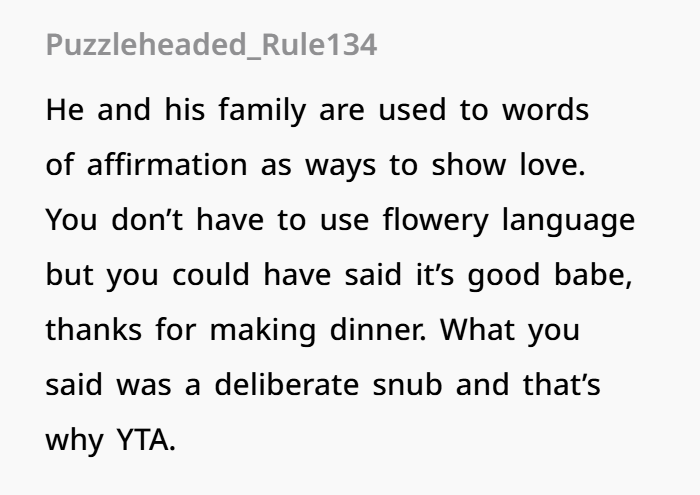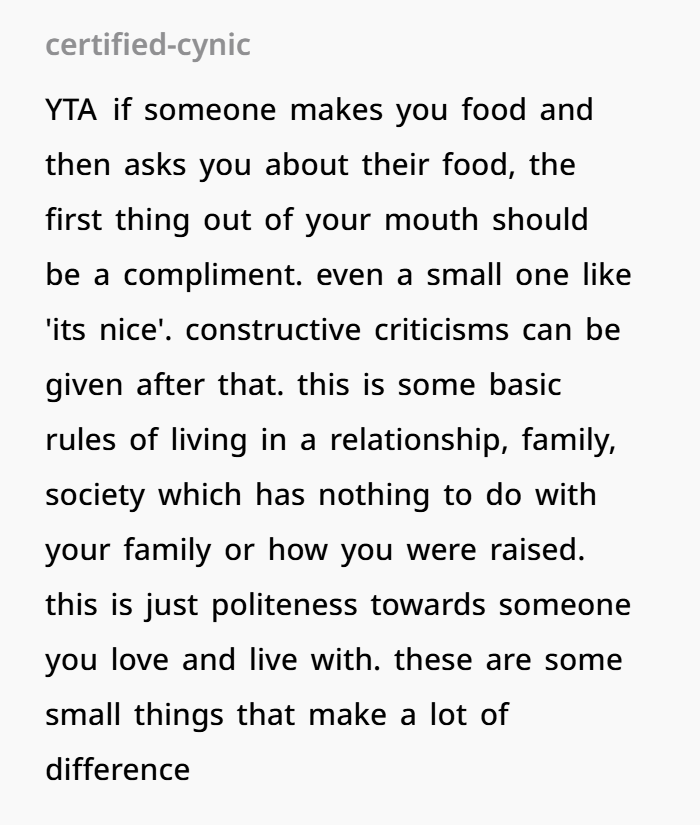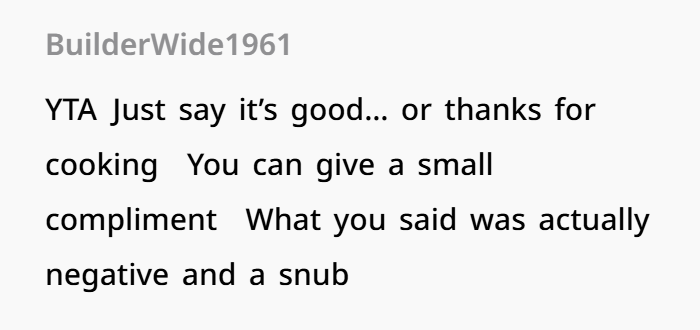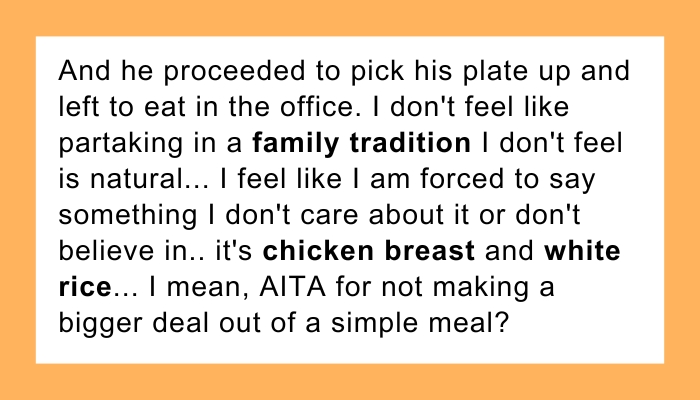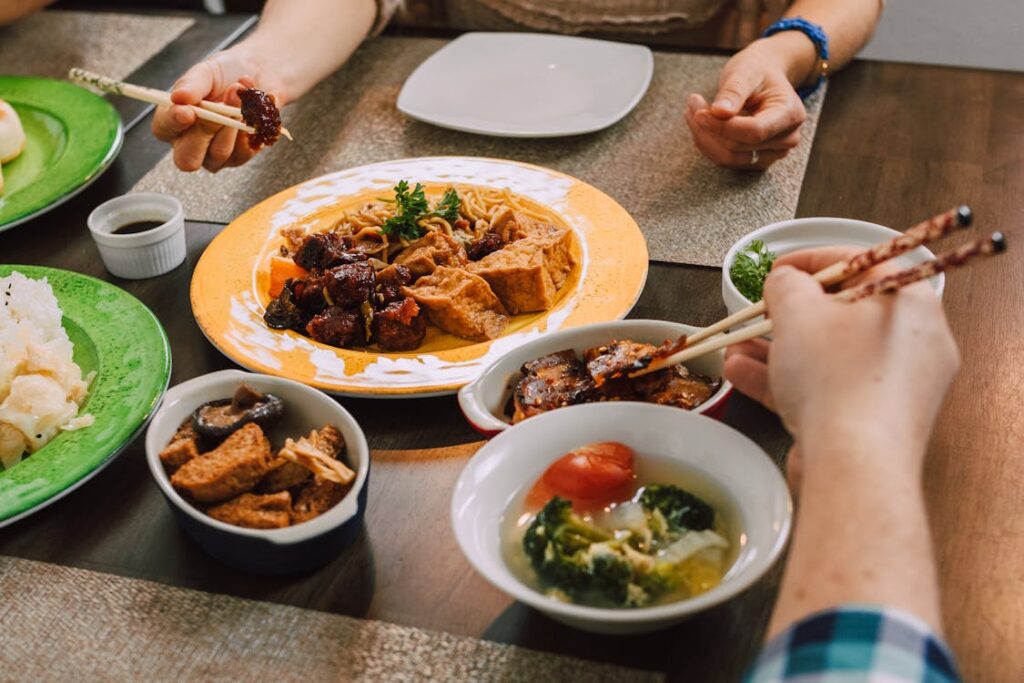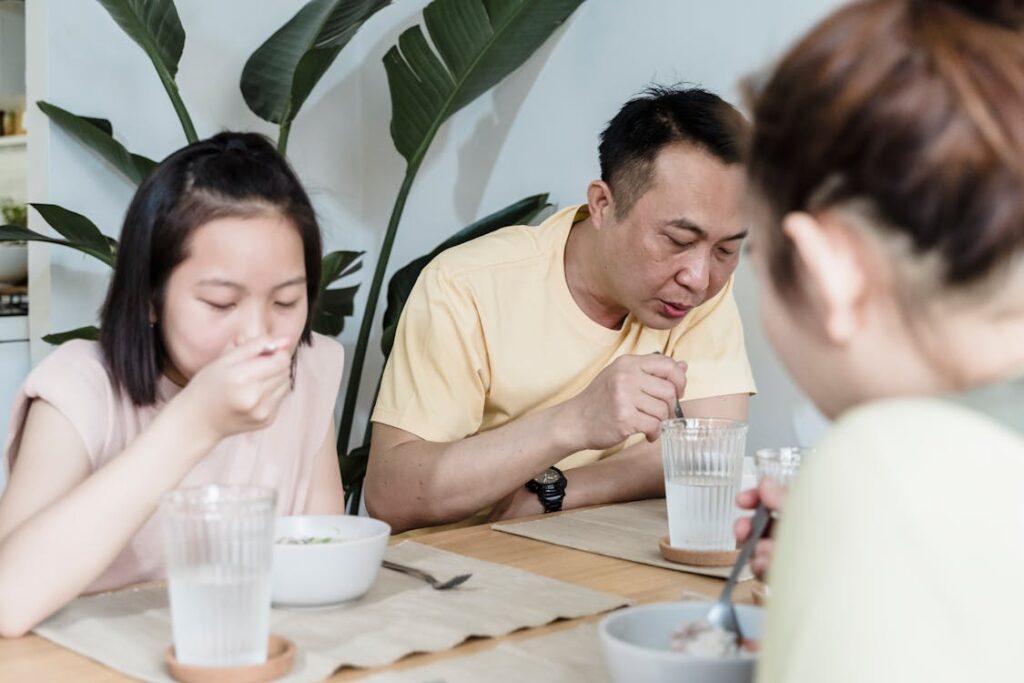Woman Refuses To Treat BF’s Cooking Nicely Since She Considers It ‘Hypocrisy,’ He Gets Really Upset
You know that awkward moment when someone asks, “How’s the food?” and you pause because it’s… just okay? Not terrible, not amazing—just basic. For some people though, eating isn’t just about getting nutrition. It’s an event. And they expect every home-cooked meal to get five-star reviews and big compliments.
In today’s story, the Original Poster (OP) ended up in a tricky situation after giving honest feedback. Her boyfriend made a healthy meal—chicken breast and rice—and asked how it was. She simply said it was “fine.” No excitement. No over-the-top praise. Just a real answer. But that didn’t go over well.
This moment highlights something deeper—how we give feedback in relationships, especially around personal things like home cooking or healthy eating. It’s a reminder that communication in relationships takes emotional intelligence. Sometimes, what seems like a simple comment can lead to bigger feelings.
Sometimes in relationships, what feels completely normal to one partner can feel totally foreign to the other
The author’s boyfriend made some food and asked how it tasted, to which they responded that it was “fine” and that there was nothing special about it

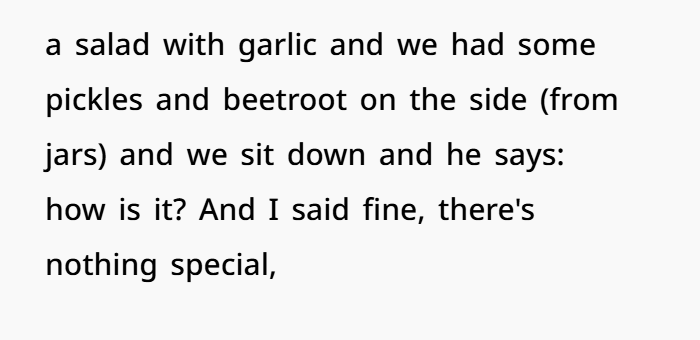
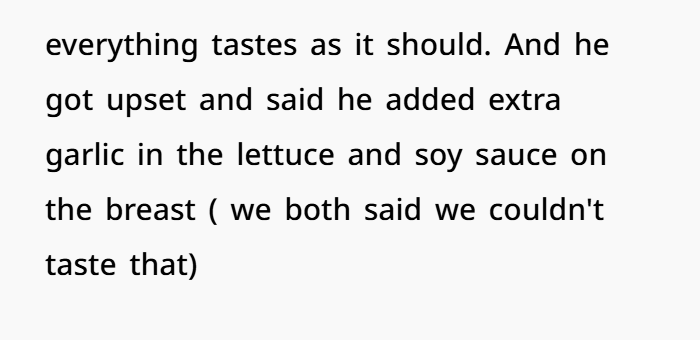
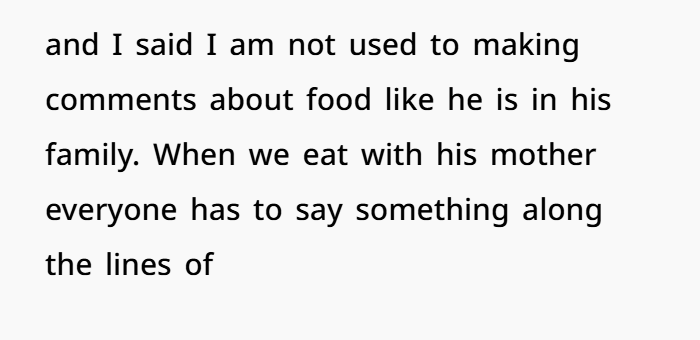
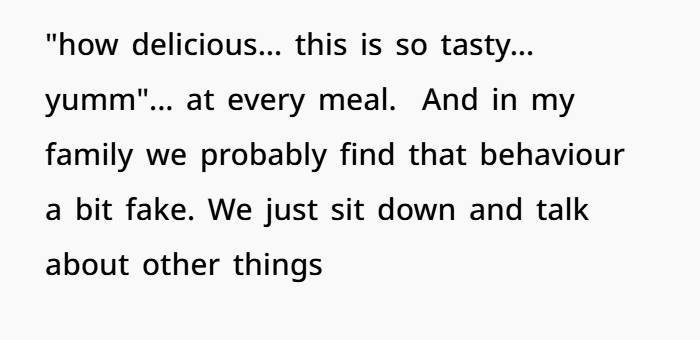
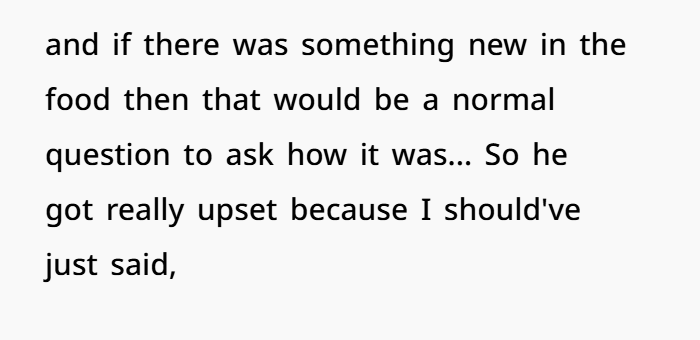
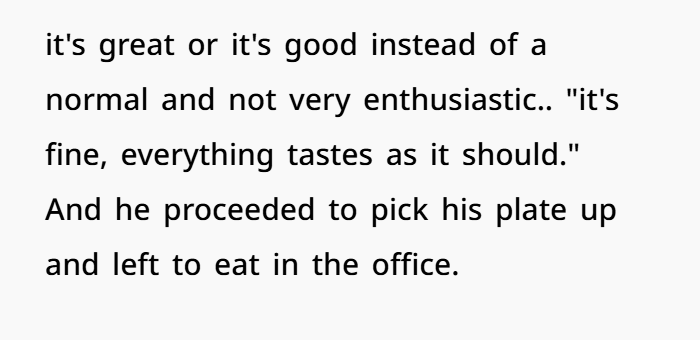
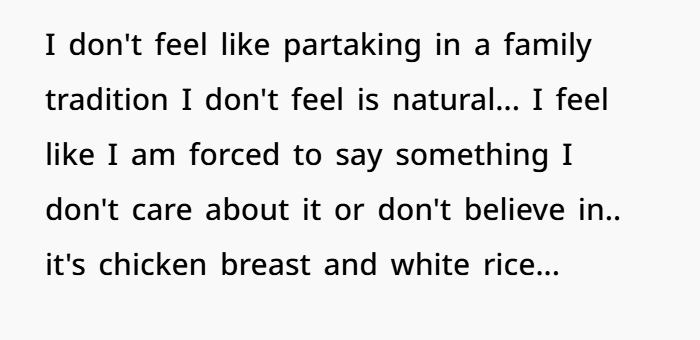
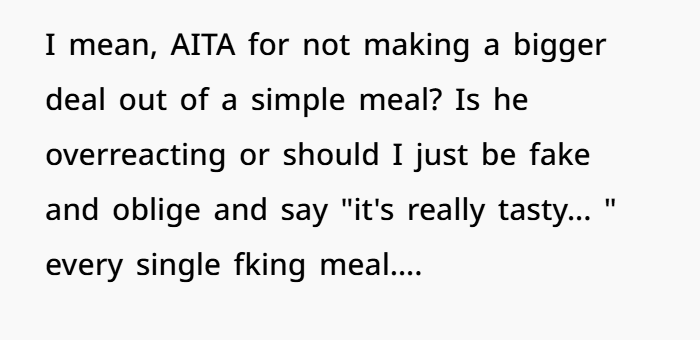
The conflict started over what seemed like a simple dinner. The OP’s boyfriend had lovingly cooked a meal of chicken breast, white rice, a garlic-loaded salad, and some jarred beetroot with pickles. After putting in the effort, he asked how the food was. The OP replied that it was “just fine” and didn’t feel like it was anything special.
What the OP didn’t realize was that he had made small changes—like adding soy sauce and extra garlic—to try and impress. Even though neither of them really tasted a big difference, he was hoping for verbal appreciation.
This situation highlighted a deeper issue. In his family, showing love through food and getting positive feedback is normal. Compliments at the dinner table are almost a tradition. But for the OP, mealtime was more about conversation than celebration. Authentic communication was more important to them than giving praise just for the sake of it.
When the boyfriend didn’t get the reaction he expected, he quietly left the table and chose to eat alone. The OP was confused and hurt, not understanding that what their boyfriend really wanted was emotional validation.
This difference in family values caused a misunderstanding. The boyfriend believed love should be expressed openly, especially through praise. The OP felt that genuine compliments should be earned, not automatically given. To them, forced praise felt fake.
This small moment turned into a bigger conversation about relationship dynamics and how each partner’s upbringing shapes what they expect from love and support.
According to The Healthy, saying “thank you” isn’t just good manners—it actually has powerful emotional benefits. Showing gratitude in relationships helps build a positive mood and brings people closer. Even small compliments or kind words can make a big difference in how connected partners feel.
As they put it, gratitude can “strengthen a relationship in unimaginable ways.” It’s a reminder that simple words of appreciation matter more than we often think.
In this story, the Original Poster (OP) and their boyfriend had different expectations. According to Bright Side, the way we’re raised as children affects how we act in adult relationships. The boyfriend grew up in a home full of praise and kind words. The OP, on the other hand, came from a more quiet, reserved background. So when he asked how his home-cooked chicken and rice tasted, the OP’s simple “it’s fine” response felt cold to him—even if it was honest.
The Zoe Report explains that even strong, loving relationships can have natural differences. Especially when it comes to love languages—how people give and receive love. These mismatches can cause someone to feel unappreciated or ignored, even when love is there.
Online, many people criticized the OP, calling them cold or dismissive. Commenters pointed out that showing appreciation—even in small, sincere ways—is a basic part of a healthy relationship. It’s not about being dramatic; it’s about being kind and thoughtful. Some even mentioned cultural differences and how people express love differently, but they all agreed: a little gratitude goes a long way.
So, what do you think?
Should words of affirmation be expected in relationships—or do you think actions speak louder than words?
We’d love to hear your thoughts on relationship communication and what works best for you!
Netizens insisted that their approach was cold and dismissive, so they all sided with the boyfriend on this one
